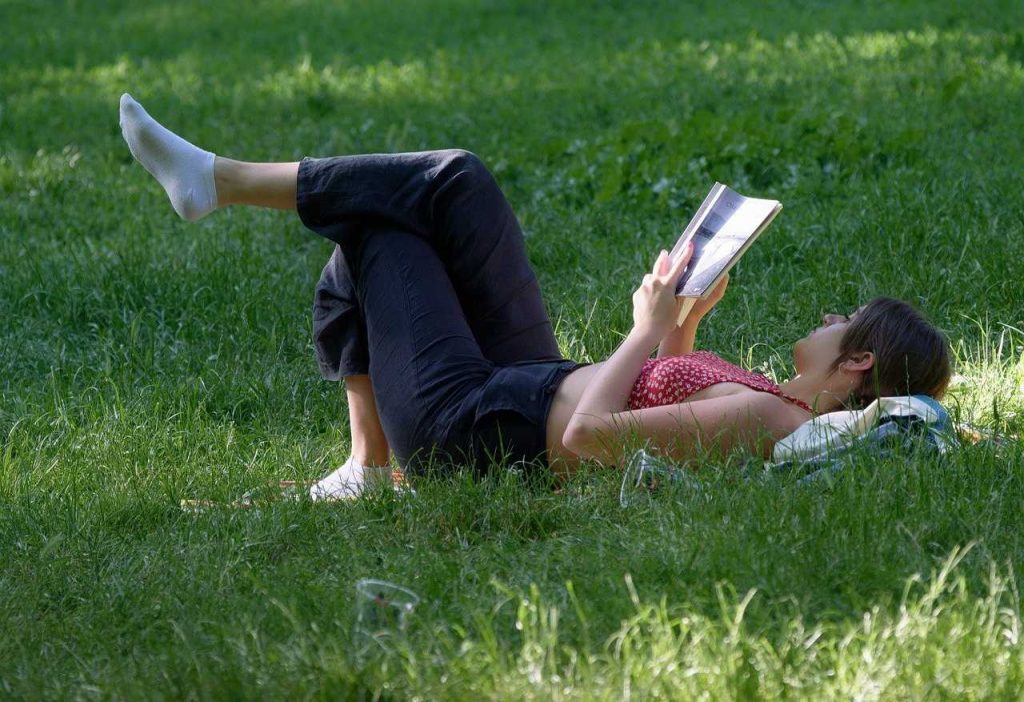Stress is something we all experience from time to time. Whether it’s a work deadline, family matters, or just the fast pace of life, it can feel overwhelming.
The good news is, there are simple ways to reduce stress and calm down quickly. Below are eight practical tips, explained in detail, that you can use to regain control and find peace when life gets hectic.
1. Deep Breathing: Calm Your Mind with Your Breath

One of the easiest ways to quickly reduce stress is to focus on your breathing. Deep breathing can help slow your heart rate, lower your blood pressure, and relax your body. When you’re stressed, you tend to take short, shallow breaths, which only makes anxiety worse. Deep, slow breaths do the opposite—they signal your body to calm down.
How to Do It:
- Sit or lie down somewhere quiet and comfortable.
- Close your eyes and place one hand on your chest and the other on your stomach.
- Breathe in deeply through your nose for a count of four, feeling your belly rise.
- Hold the breath for a count of four.
- Slowly exhale through your mouth for a count of six.
- Repeat this for 5–10 minutes.
This simple practice can be done anywhere—at work, at home, or even on the go. It’s a fast way to bring a sense of calm and clarity to your mind.
2. Progressive Muscle Relaxation: Let Go of Physical Tension
When you’re stressed, your body tends to tighten up without you even realizing it. Progressive Muscle Relaxation (PMR) is a technique that helps you release this tension. It involves tensing and then relaxing different muscle groups, which helps your body relax and signals your brain to follow suit.
How to Practice PMR:
- Sit or lie down comfortably.
- Start with your feet—tense the muscles for about 5 seconds, then relax.
- Move up your body: legs, abdomen, arms, shoulders, neck, and face—tense each group, then relax.
- Focus on the feeling of relaxation after releasing each muscle group.
PMR is especially helpful when you’re winding down at the end of a long day. It helps you recognize where you’re holding tension and teaches your body to release it.
3. Mindfulness Meditation: Be Present in the Moment
Mindfulness is about paying attention to the present moment without judgment. When you’re stressed, your mind often races with worries about the future or regrets about the past. Mindfulness meditation helps you stay grounded and breaks this cycle of anxious thoughts.
How to Meditate:
- Find a quiet spot and sit comfortably.
- Close your eyes and take a few deep breaths.
- Focus on your breathing, noticing the air going in and out.
- If your mind starts to wander (which is normal), gently bring your focus back to your breath.
- Start with just 5 minutes a day and gradually increase.
Mindfulness meditation doesn’t require a lot of time, and it’s a great way to quiet your mind and reduce stress. It trains you to live in the moment, making it easier to handle life’s pressures.
4. Exercise: Move Your Body to Relieve Stress
Exercise is one of the most effective ways to reduce stress. Physical activity releases endorphins, which are natural mood boosters. It also helps improve sleep, reduces fatigue, and provides a healthy outlet for stress.
What to Do:
- Walk or Run: A brisk walk or jog is a simple way to get your heart pumping and clear your mind.
- Yoga: Combining physical movement with deep breathing, yoga is excellent for both the body and mind.
- Strength Training: Lifting weights or doing bodyweight exercises can give you a sense of accomplishment while also burning off stress.
Even just 10 minutes of movement can make a difference. Regular exercise not only reduces stress but also improves your overall mood and energy levels.
5. Visualization: Create a Mental Escape

Visualization is a powerful mental technique where you imagine yourself in a peaceful place. By creating a mental image of calm and serenity, you can reduce stress quickly and feel more relaxed. Your brain often reacts to imagined experiences in the same way it reacts to real ones, making this a great tool for calming down.
How to Visualize:
- Sit in a comfortable position and close your eyes.
- Picture yourself in a calm, peaceful setting—maybe a beach, a forest, or a cozy room.
- Engage all your senses: What do you see, hear, smell, and feel in this place?
- Spend a few minutes enjoying this mental escape.
Visualization helps distract you from stress and brings your focus to a place of calm, which helps you relax both mentally and physically.
6. Take a Break: Step Away and Reset
When you’re overwhelmed, it’s tempting to push through and keep going. But taking a short break can actually help you feel more refreshed and ready to handle challenges. A mental pause allows your brain to reset, and you’ll return to your tasks with more clarity.
How to Take a Break:
- Go for a walk outside and enjoy the fresh air.
- Have a cup of tea or coffee and savor it slowly.
- Listen to calming music or nature sounds.
- Stretch your body to release any built-up tension.
Even just 10 minutes away from your current task can help you recharge and come back with a clearer mind.
7. Laughter: Lighten Your Mood

Laughter is a great, natural way to reduce stress. It lowers levels of the stress hormone cortisol, increases endorphins, and promotes a relaxed feeling in your body. Plus, it’s contagious! The more you laugh, the better you’ll feel.
How to Add Laughter to Your Day:
- Watch a funny TV show or movie.
- Read a humorous book or comic.
- Spend time with friends or family who make you laugh.
- Scroll through social media for funny videos or memes.
Laughter shifts your focus away from stress and makes everything feel a bit lighter. It’s one of the easiest ways to boost your mood instantly.
8. Gratitude Practice: Focus on the Positive
When you’re stressed, it’s easy to focus on everything that’s going wrong. Practicing gratitude shifts your mindset toward the positive. By regularly acknowledging the good things in your life, you can lower stress and improve your overall mental well-being.
How to Practice Gratitude:
- Each day, write down three things you’re thankful for—big or small.
- Think about why these things make your life better.
- Reflect on the positive feelings they bring.
Over time, gratitude helps train your brain to focus on the good, even during stressful times. It’s a simple habit that can significantly reduce stress and promote happiness.
Conclusion
Stress is a part of life, but it doesn’t have to take over. By practicing these eight techniques—deep breathing, progressive muscle relaxation, mindfulness, exercise, visualization, taking breaks, laughing, and practicing gratitude—you can calm yourself quickly and reduce the impact of stress on your mental and physical health. The key is to find what works best for you and make it a regular part of your routine. Life will always have its challenges, but with the right tools, you can manage stress and stay calm in the face of pressure.

